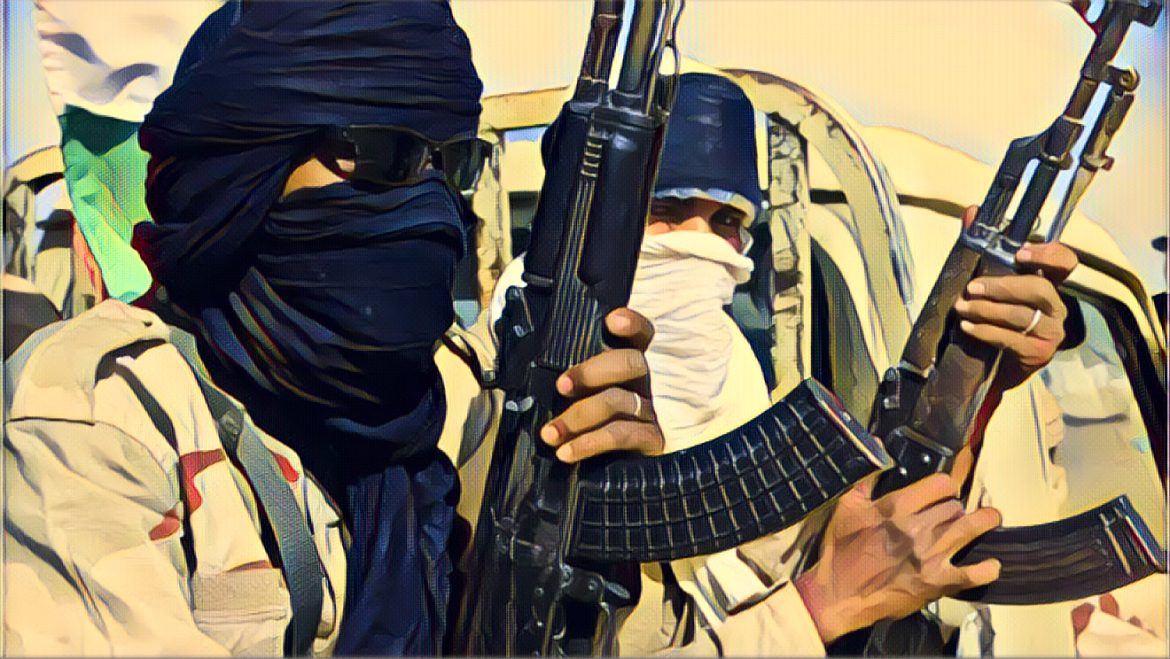Nigeria has been rocked by a series of brutal attacks by armed groups, also known as bandits, that have left hundreds of people dead and thousands homeless in the central and northwestern regions of the country. The attacks, which began on Tuesday and lasted until Monday, targeted more than 20 villages in Zamfara and Plateau states, where the bandits torched houses, looted cattle, and mutilated the bodies of their victims.
The violence is believed to be a retaliation for the military airstrikes that hit the bandits’ hideouts in the Gusami forest and west Tsamre village in Zamfara state on Monday, killing more than 100 of them, including two of their leaders. The military said the airstrikes were based on credible intelligence reports and were aimed at restoring peace and security in the region.
However, the bandits’ response was swift and savage, as they stormed the villages on motorcycles, shooting indiscriminately and kidnapping some residents for ransom. According to local authorities, at least 160 people have been confirmed killed, while more than 300 others have been wounded and taken to hospitals in Bokkos, Jos, and Barkin Ladi. Some residents said the death toll could be as high as 200 or more, as many bodies were still being recovered from the rubble.
The attacks have also displaced more than 10,000 people, who have fled their homes and sought refuge in nearby towns and camps. The government has deployed security forces to the affected areas and promised to provide relief materials and financial assistance to the victims. The government has also officially labeled the bandits as terrorists, allowing the security forces to impose tougher sanctions on the groups and their supporters.
The bandit attacks are not new to Nigeria, as the country has been grappling with a surge of insecurity and violence in its northern and central regions for several years. The bandits are part of a complex network of criminals who operate across large swathes of territory, often stealing animals, kidnapping for ransom, and killing those who confront them. They are also involved in illegal mining, smuggling, and arms trafficking, and have links with some extremist groups, such as Boko Haram and Islamic State West Africa Province (ISWAP).
The bandits have exploited the weak governance, poverty, and environmental degradation that plague the region, as well as the competition for natural resources between nomadic herders and farmers, which has intensified due to rapid population growth and climate change. The bandits have also taken advantage of the porous borders with neighboring countries, such as Niger, Chad, and Cameroon, to evade capture and recruit more members.
The government has tried various strategies to tackle the banditry problem, such as dialogue, amnesty, and military operations, but none has yielded lasting results. Some analysts have called for a holistic and multi-dimensional approach that addresses the root causes of the conflict, such as improving governance, providing social services, creating economic opportunities, and promoting dialogue and reconciliation among the communities.
Despite the grim situation, some signs of hope have emerged, as some bandits have released some of their hostages after negotiations with the authorities and religious leaders. On Saturday, 30 students and one teacher who had been abducted from their college in Kebbi state six months ago were freed by their captors. They were among the 102 students and eight teachers who were taken from the school in June. Some of them had already been released last year after their parents paid ransoms.
The freed students and teachers were received by the Kebbi state governor, who thanked the security agencies and the mediators for their efforts. He also vowed to continue working to secure the release of the remaining hostages and end the banditry menace in the state.
Source: The Guardian


